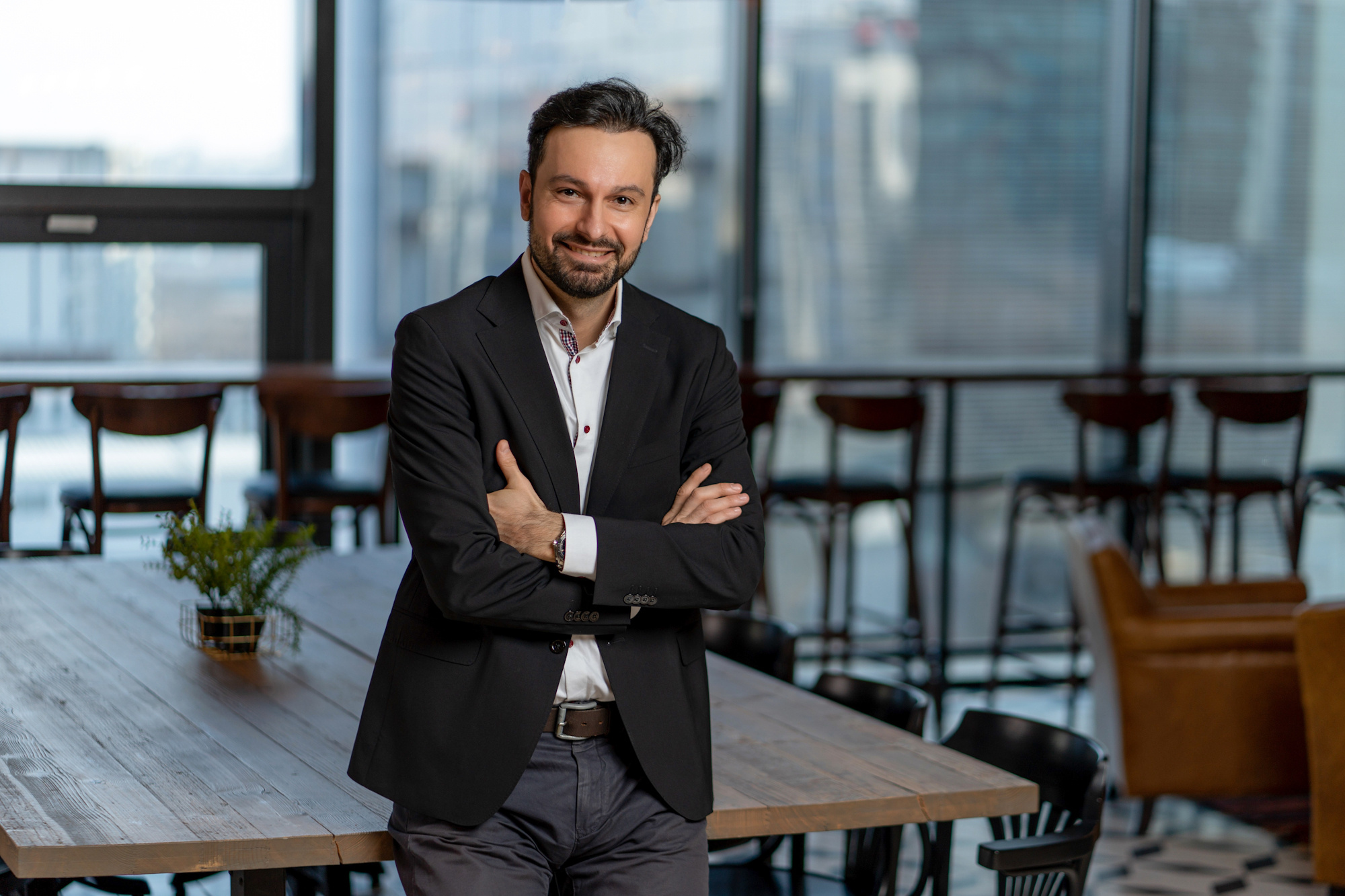ZF | Interview with Bogdan Ciubotaru | Aliant: How AI accelerates the transition to decision intelligence
♦ Aliant closed 2024 with a turnover of 15 million euros, registering a 30% increase ♦ For the end of 2025, the company estimates a 10% increase in turnover, up to 16.5 million euros.
Companies are no longer looking only for software robots that fill out forms, but solutions based on intelligent agents and contextual artificial intelligence (AI), capable of thinking alongside people. Thus, hyper-automation becomes the new strategic terrain for GenAI and AI-native platforms, said Bogdan Ciubotaru, managing partner at Aliant, an IT solutions integrator and leader in providing hyper automation and managed print services solutions.
“We are witnessing a natural transition from functional automation to decision intelligence, where systems not only execute, but also start to ‘think’ alongside people. Customers are no longer looking for just RPA or ‘form digitization’, they are looking for solutions that give them a competitive advantage. And here we can talk about intelligent agents, contextual AI integration and proactive capabilities. Hyper automation is becoming a playground for GenAI, AgenticAI and AI-native platforms. We are no longer talking just about automation, but about augmented operational intelligence,” Bogdan Ciubotaru said in an interview for ZF.
He added that AI should be seen as a powerful accelerator in achieving goals and not as a universal solution.
"We integrate it where it brings real and rapid value because it can dramatically reduce execution time, increase efficiency and bring new capabilities. It is a key component in a broader ecosystem of technologies - alongside RPA, Low-Code and the various programming languages that we use."
And in the area of hyper automation, artificial intelligence is the engine that allows companies to go much further than simple automation. “We are talking about applications that learn from the operational behavior of customers, which can anticipate bottlenecks, prioritize decisions or even act autonomously in critical flows,” Bogdan Ciubotaru added.
He explained that since 2024, companies have started looking for solutions that deliver efficiency quickly and visibly and not just buzzword technologies.
“Last year we saw a clear orientation towards integration, applied AI, contextual automation and solutions that help optimize repetitive or decision-making processes. Security has become a cross-cutting theme, present regardless of the industry.”
The main challenge last year was and still is the rapid adaptation to an increasingly polarized market between standardized solutions and customization demands, the Aliant representative pointed out. “We want to balance operational agility with the need for scaling and build solid internal capabilities, especially in the areas of AI, security and low-code.”
Currently, the Aliant team has 56 colleagues. In 2024, the company hired 11 new people, mainly in the sales and delivery departments, and from the beginning of 2025 to the present it has hired five more new people. "We continue to recruit new colleagues in the sales, delivery, product management and marketing teams. We collaborate with universities. For example, we have programs for students that extend over several years in automation/RPA together with partners from Tailent in Vasile Alecsandri University in Bacău, Lucian Blaga University in Sibiu or Alexandru Ioan Cuza University in Iași. These are applied courses, and students have the chance to acquire solid skills that can then be applied in the business environment," Bogdan Ciubotaru added.
He explained that the next two to three years will bring profound transformations in three major directions, all closely linked to the pressure for operational efficiency, transparency and adaptability.
“We will see a migration from one-off IT projects to integrated, automated and scalable solutions. Companies, including mid-sized ones, are no longer just looking for tools but are looking towards a real, holistic transformation.”
The “digital maturity gap” will also become increasingly visible, and companies that have started their digital transformation will advance exponentially. “Companies that delay will face losses in competitiveness. I think we will see 10-15% growth in the area of intelligent solutions, with an increasing demand for infrastructure, security and integration expertise.”
"Although there are many uncertainties globally, local talent and expertise will continue to represent a strategic advantage for Romania, especially in the context of regionalization of services and relocation of decisions, our country can further consolidate its position as a regional IT hub," Bogdan Ciubotaru pointed out.
The Romanian company Aliant ended 2024 with a 30% increase in turnover, reaching 15 million euros. And for the end of 2025, representatives estimate a 10% increase in turnover, up to 16.5 million euros.
"We are aiming for a sustainable growth of at least 10%, which would mean a turnover of approximately 16.5 million euros at the end of 2025," the Aliant representative also said.
Source: ZF.ro https://www.zf.ro/business-hi-tech/bogdan-ciubotaru-managing-partner-aliant-asistam-tranzitie-naturala-22807222
Read also:
Integratorul IT Aliant, afaceri de 15 mil.euro în 2024, plus 30%. În 2025, compania românească mizează pe o evoluţie sustenabilă de cel puţin 10%, susţinută de soluţiile bazate pe AI. „Viitorul va fi definit de tehnologii precum GenAI şi AgenticAI”




Comments